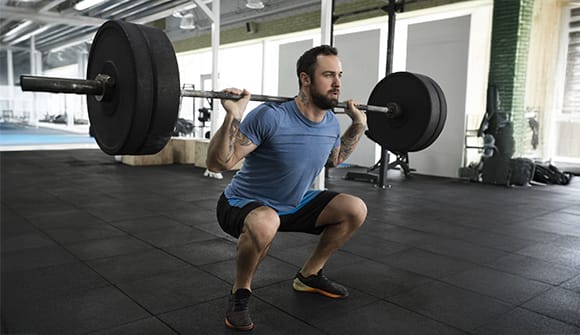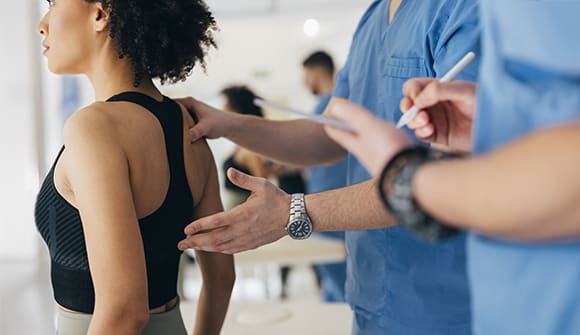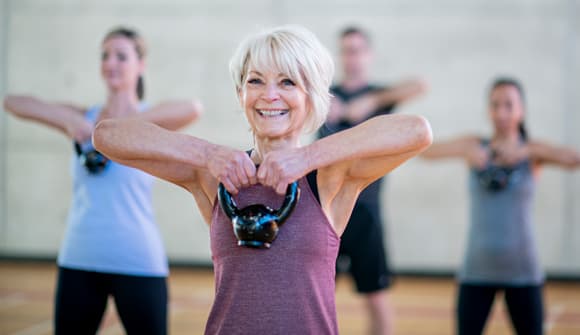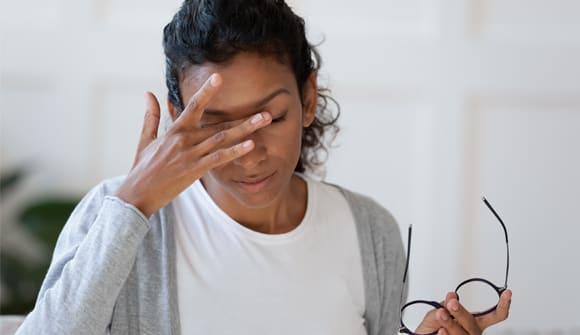Boost your bone health
Take steps toward strength today.
Article Author: Beth Stambaugh
Article Date:

You may associate weak, brittle bones with people who are well into their golden years. So, it might surprise you to learn most people reach their peak bone mass between the ages of 25 and 30. By age 40, bone mass slowly starts to decline.
A substantial decline can lead to osteoporosis, a condition resulting in bones becoming fragile and brittle. It typically affects people over the age of 50, said Harrison Mahon, MD, an orthopedic surgeon with Baptist Health. In fact, around 10 million people over 50 in the U.S. have the disease. An additional 44 million have osteopenia, a condition marked by lower-than-normal bone density that is less severe than osteoporosis but increases the risk for developing it.
Signs of bone loss
It’s not unusual for patients to be unaware they’re experiencing bone loss.
"Because it typically doesn’t hurt, people often don’t know it’s happening," said Dr. Mahon. "Older patients may experience a loss of height, which can be a sign of compression fractures or that the bones in their spine are weakening."
Symptoms may include:
- Bones that break easily
- Stooped posture
- Loss of height
- Back pain
The most common conditions Dr. Mahon sees related to weak bones are wrist, hip and spinal fractures. He typically sees wrist fractures in 50- to 70-year-olds, whereas hip fractures tend to happen to those over 70.
“In this age range, injuries like these often trigger a workup for underlying low bone mass,” said Dr. Mahon.
Osteoporosis screening guidelines
A DEXA scan, also known as a bone density scan, is one of the most common methods to test for osteoporosis. Women over the age of 65 and men over 70 should consider having the minimally invasive imaging exam.
“Of course, your physician may suggest you get tested earlier if you have a family history of osteoporosis or if you have a metabolic abnormality like Type 1 diabetes or rheumatoid arthritis, all of which increase your risk of developing osteoporosis,” said Dr. Mahon.
Women, for example, with a family history of the disease are advised to begin screenings as early as 50.
Who’s most at risk?
In addition to family history, simply being a woman increases one’s risk of developing the condition. Post-menopausal women over 50 are at the highest risk because of a drop in estrogen, which can lead to porous, weak bones and osteoporosis.
“Women are actually four times more likely to experience bone loss than men,” said Dr. Mahon.
While it's more common in women, osteoporosis can still affect men. In fact, 2 million American men have it and an additional 16 million are at risk of developing the condition. It’s estimated half of women and one-quarter of men over 50 will experience an osteoporosis-related fracture in their lifetime.
Make prevention a priority
While you can rebuild bone mass with the help of medications, your best defense is prevention.
Dr. Mahon’s advice for keeping your bones healthy is a balanced diet and exercise.
“Foods high in calcium and vitamin D promote healthy bones,” he said. “It’s also important to make sure your diet contains the appropriate amount of protein.”
For most healthy adults, the recommended daily intake of protein is 0.8 grams per kilogram of body weight, which roughly equates to around 7 grams for every 20 pounds.
Bone-building foods:
- Dairy products
- Oranges and orange juice
- Bread made with fortified flour
- Salmon
- Eggs
- Nuts and seeds
- Green leafy vegetables
- Soy
- Tofu
If you’re not getting enough of these essential bone-boosting vitamins in your diet, taking calcium and Vitamin D supplements may be your best option. But before you start any type of supplement, Dr. Mahon recommended speaking to your primary care doctor and stressed the importance of reading labels.
“Physical activity is important for healthy bones,” explained Dr. Mahon. “You don’t necessarily have to do strenuous exercise, just staying active, doing low-impact exercise and maintaining your general fitness level can help strengthen bones.”
Do you have concerns about your bone density?
Talk to a specialist at Baptist Orthopedics. You can make an appointment by calling 904.202.MOVE (6683) or by filling out this form online.



